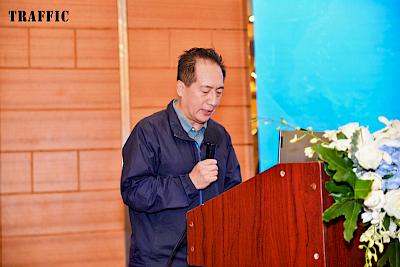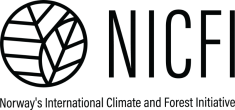Strengthening Global Wildlife Conservation: Stakeholders Unite for Sustainable Development at 2025 International Day for Biological Diversity Event
Joint Initiative Launches Industry-Wide Action to Combat Illegal Trade and Promote Responsible Practices.
Guangzhou, China – 22 May 2025 In celebration of the International Day for Biological Diversity 2025, a landmark event titled "Enhancing Capacity for Wildlife Conservation and Sustainable Industry Development" was held in Guangzhou. The event brought together over 150 representatives from government agencies, industry associations, academia, NGOs, and private enterprises. Hosted by the China Wildlife Conservation Association (CWCA), China Aquatic Products Processing and Marketing Alliance (CAPPMA), China Association of Traditional Chinese Medicine (CATCM), and China Timber and Wood Products Distribution Association (CTWPDA)—with support from TRAFFIC—the event aimed to advance the implementation of the Kunming-Montreal Global Biodiversity Framework Target 5 and prepare for the upcoming CITES CoP20.
Dr. Xianlin Meng, former Deputy Director General (Executive) of China CITES Management Authority emphasized China’s commitment to biodiversity conservation in his opening remark:

China’s endangered species populations in wild are steadily recovering, thanks to robust habitat protection and science-based management. Building a legal, sustainable, and traceable system is critical to balancing ecological preservation and economic growth.”
The event highlighted China’s advancements in implementing the CITES, emphasizing the need for enhanced enforcement mechanisms to combat illegal wildlife trade. Dr. Yingchun Xing of the Chinese Academy of Fishery Sciences provided an in-depth analysis of challenges in regulating CITES-listed aquatic species, including the complexities of managing high-value products like the swim bladders of the critically endangered Totoaba macdonaldi, which have been linked to organized smuggling networks.
Insights were shared on proposed species listing adjustments for upcoming CITES negotiations, underscoring the importance of aligning domestic policies with global conservation priorities.
Ling XU, Director of TRAFFIC China warned of increasingly sophisticated transnational trafficking operations targeting marine, rosewood and medicinal species, and stressed that:
industries must adopt proactive compliance strategies, such as risk-monitoring systems and traceability frameworks, to address evolving threats tied to illicit trade. This call to action reinforced the critical role of cross-sector collaboration in strengthening enforcement and disrupting criminal networks.”
Leaders from key sectors outlined strategies to align business operations with conservation goals:
• Mr. He Cui, President of CAPPMA , advocated for international collaboration to establish sustainable seafood standards and expand blue eco-labeling programs.
• Mr. Runhuai Zhao, Deputy Secretary-General of CATCM, stressed the importance of artificial breeding programs and substitution research for endangered medicinal species: “Sustainable sourcing is not just an ethical obligation—it’s a prerequisite for global market access.”
• Ms. Wei Shen, Vice President of CTWPDA , addressed the impact of the EU’s Deforestation-Free Regulation (EUDR) on supply chains and called for enhanced corporate due diligence to ensure legality and sustainability.
 The event concluded with a groundbreaking moment on the joint launch of the Wildlife Conservation and Sustainability Pledge, endorsed by all co-hosts. The pledge outlines actionable commitments:
The event concluded with a groundbreaking moment on the joint launch of the Wildlife Conservation and Sustainability Pledge, endorsed by all co-hosts. The pledge outlines actionable commitments:
1. Zero tolerance for illegal wildlife trade through rigorous compliance with national and international laws.
2. Capacity building to strengthen industry expertise in identifying and reporting illicit activities.
3. Cross-sector collaboration to share best practices and drive innovation in sustainable resource use.
4. Public awareness campaigns promoting certified sustainable products.
By uniting diverse stakeholders, the event has created resilient frameworks that align economic growth with ecological preservation, fostering a shared vision for sustainable trade and conservation.
Notes:
This event was primarily funded through two key initiatives: the CITES Secretariat-supported "A pilot project on demand reduction through behaviour change with regards to illegally-imported totoaba (Totoaba macdonaldi)" and the "Guard Wildlife (Global United Action to Reduce and Dismantle Organized Wildlife Crime) Demand Reduction Alliance" in partnership with UNODC and with funding by the European Union.
Additional support was provided by TRAFFIC’s complementary projects, including:
- "Leveraging legality along China’s timber supply to reduce deforestation" project funded by Norway's International Climate and Forest Initiative (NICFI);
- "Demand reduction, Enforcement and policies supporting The conservation of Elephants and Rhinos (DETER)" project funded by the German Partnership against Wildlife Crime in Africa and Asia, implemented by GIZ on behalf of the German Federal Ministry for Economic Cooperation and Development (BMZ) and the German Federal Ministry for the Environment, Climate Action, Nature Conservation and Nuclear Safety (BMUKN).;
- "Demand reduction and behaviour change along China’s parrot supply chains" project funded by the UK Government through Illegal Wildlife Trade Challenge Fund (IWTCF);
- "China Champions of Change II: Addressing the demand for illegal wildlife products" project funded by the European Union.
About The Illegal Wildlife Trade Challenge Fund

Funded by the UK Government through Illegal Wildlife Trade Challenge Fund.
The Illegal Wildlife Trade Challenge Fund is a UK government grants scheme that provides support to projects around the world that are tackling the illegal wildlife trade. IWT Challenge Fund
About Norway's International Climate and Forest Initiative (NICFI):

NICFI supports efforts to reduce greenhouse gas emissions resulting from deforestation and forest degradation in developing countries through efforts to improve forest and land management in tropical forest countries and reduce the pressure on tropical forests from global markets.
Convention on International Trade in Endangered Species of Wild Fauna and Flora (CITES)

The Convention on International Trade in Endangered Species of Wild Fauna and Flora, is an international agreement between governments that aims to ensure that international trade in specimens of wild animals and plants does not threaten their survival. Find out more here.
About the EU

About DETER

The DETER project is funded by the German Partnership against Wildlife Crime in Africa and Asia, implemented by GIZ on behalf of the German Federal Ministry for Economic Cooperation and Development (BMZ) and the Federal Ministry for the Environment, Nature Conservation, Nuclear Safety and Consumer Protection (BMUV). https://www.giz.de/en/worldwide/66553.html
About GIZ

GIZ on behalf of the German Federal Ministry for Economic Cooperation and Development (BMZ) and the German Federal Ministry for the Environment, Nature Conservation and Nuclear Safety (BMUZ) supports international cooperation for sustainable development and international education work to shaping a future worth living around the world. www.giz.de
Federal Ministry for the Environment Germany

Funded by Federal Ministry for the Environment, Nature Conservation and Nuclear Safety.



